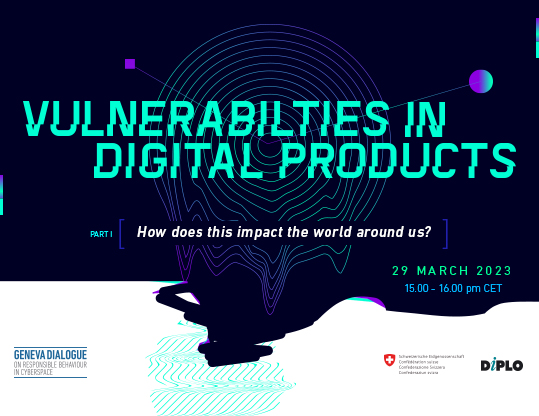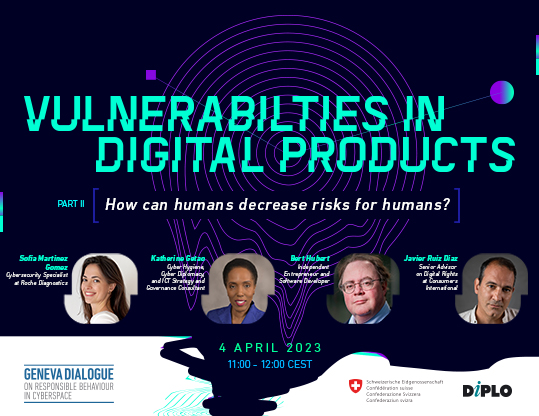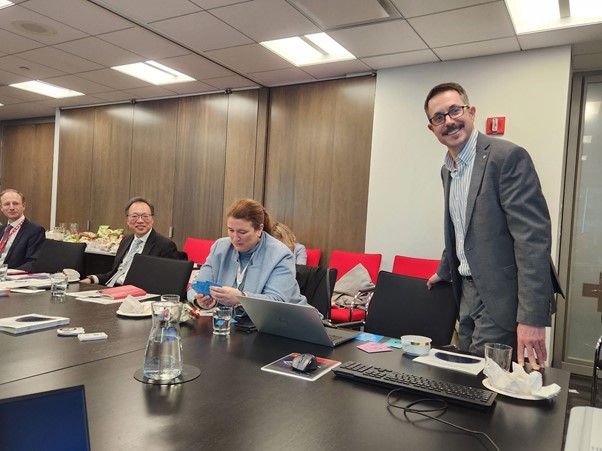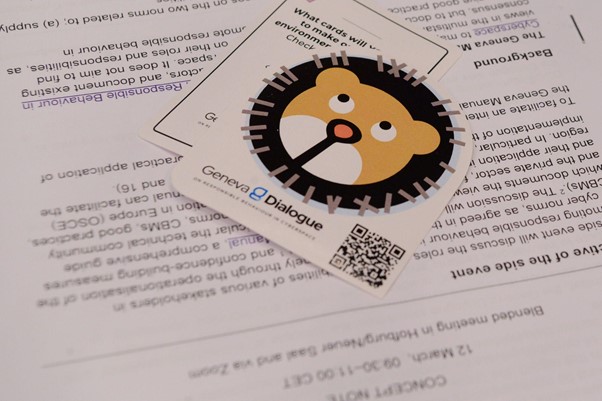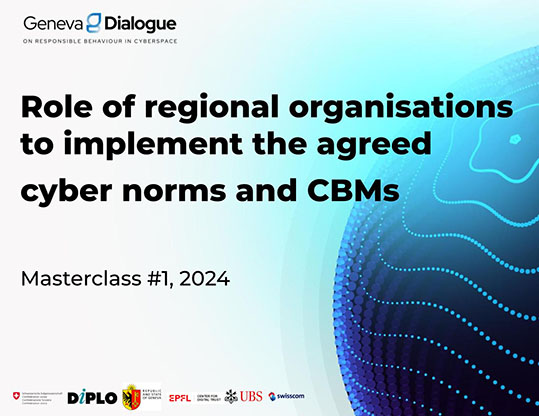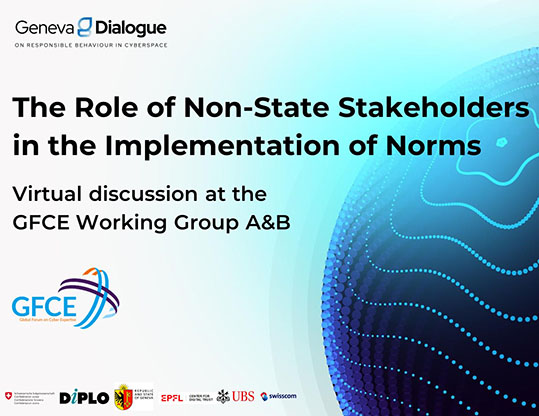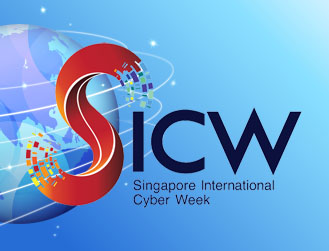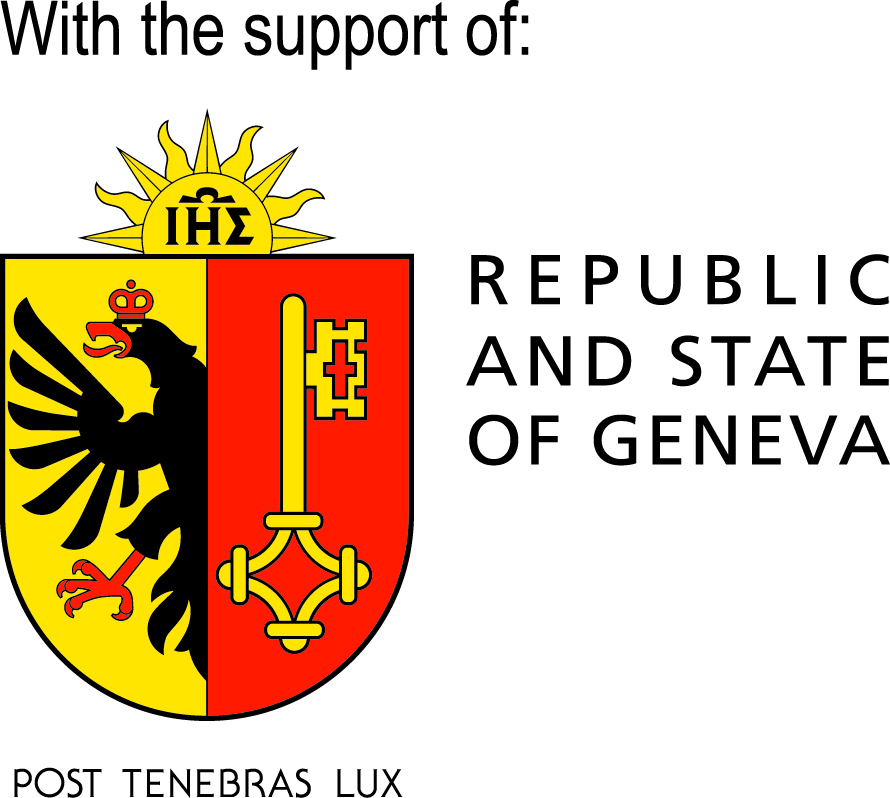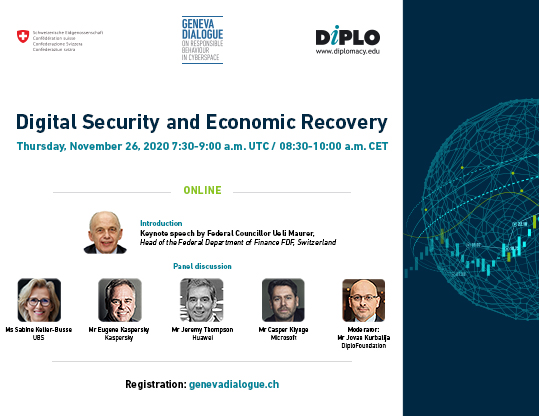
Digital Security and Economic Recovery
The online high-level event ‘Digital Security and Economic Recovery: Boosting Confidence and Productivity through Secure Digital Technology’ is organised by DiploFoundation and the Swiss Confederation as part of the Geneva Dialogue on Responsible Behaviour in Cyberspace. The majority of cyber-attacks exploit vulnerabilities in digital products and services. Although there is a lively international debate [...]

